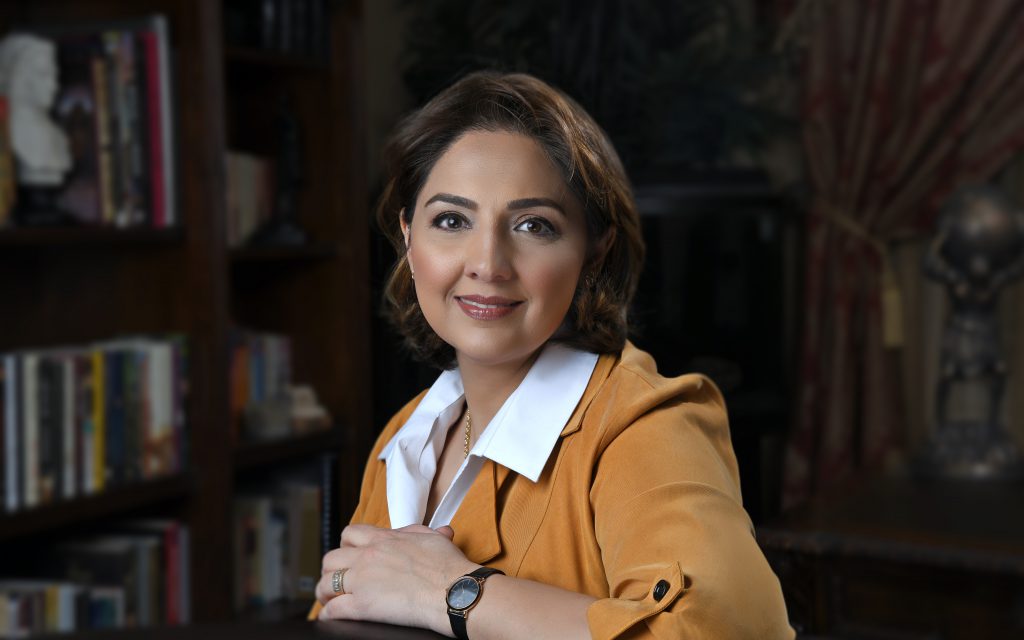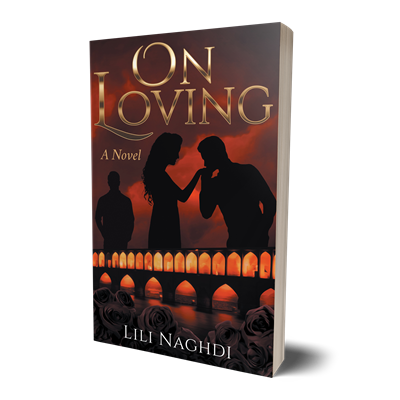Toronto-area doctor and author Lili Naghdi on adapting her family practice and author work in the face of COVID-19

1. Can you tell us a bit about yourself?
I am a family physician and researcher practicing in Vaughan, Ontario and I published my debut novel, On Loving, last year. I was born and raised in Iran and continued my medical education and research after moving to Canada with my husband and daughter in 1996. My particular interests are women’s and mental health.
2. What inspired you to write On Loving?
I’ve been a huge fan of literature for as long as I can remember, and one of my dreams as a young girl growing up in Iran was to become an author one day! Persian poetry has always been intriguing for me, and Forugh Farrokhzad, the late contemporary Iranian poet, who was also a women’s rights activist, remained a great inspiration to me since the day I first started reading her works. “On Loving” is the title of one of her famous poems written in Farsi.

My occupation has been another source of inspiration for writing “On Loving.” Working throughout the years as a family physician enabled me to explore the effects of different basic emotions on people’s physical and mental health and to assess the role these feelings play in controlling people’s interpersonal relationships. I finally decided to share my experiences in both fields by creating “On Loving” and focusing on a young woman’s complicated life journey, a turbulent journey full of twists and turns, which ultimately helped this strong yet fragile accomplished woman achieve self-awareness.
I trust that literature can act as a sturdy bridge connecting different cultures, so by using this bridge and the pages of “On Loving,” I introduced my readers to the rich Iranian culture and heritage, its ancient history, and, more importantly, real Iranian people through the eyes of On Loving’s main protagonist, an adopted Iranian-American physician.
3. What is the main message you share in your book?
I’ve always been amazed by how we, as human beings, react in our unique and different ways in similar situations or circumstances in life. Many of us never know who we really are and what we really stand for until it is too late. In other words, we may never get to know ourselves, our strengths, our weaknesses, our true potentials until the last day we live! Understanding the importance of achieving self-awareness – most possibly the hardest task to succeed in life- through working on our pure feelings and emotions, was one my main messages to reflect upon and share with my readers.
You may remember Ayn Rand’s famous quote from The Fountainhead: “To say ‘I love you’ one must know first how to say the ‘I.'” In fact, for many of us, most “emotions,” such as love, hatred, jealousy, joy, trust, sadness, … are so difficult to process and act upon in proper ways. It is essential to understand where they originate from and how they can morbidly affect our behavior, mental, and physical health.
To say ‘I love you’ one must know first how to say the ‘I’.
Ayn Rand
4. How has your work as a physician impacted the story in On Loving?
As a family physician with a keen interest in women’s and mental health, I tried to draw more attention to the issues that I’ve found more prevalent and profoundly disturbing for most people. Common conditions such as depression, anxiety disorders, PTSD, suicide, homicide, bereavement, SIDS (Sudden Infant Death Syndrome), kidney failure/transplant, breech delivery, breast cancer, domestic violence, … were among the topics discussed in this novel.

